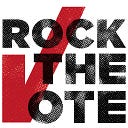Juneteenth: What You Need to Know
What is Juneteenth?
Each year Juneteenth (short for “June Nineteenth”) is a holiday commemorating the effective end of slavery in the United States. It is sometimes called Freedom Day or Emancipation Day.
Is it the commemoration of the Emancipation Proclamation?
No, Juneteenth is not the celebration of the Emancipation Proclamation.
President Abraham Lincoln issued the Emancipation Proclamation on January 1, 1863, but it only applied to places under Confederate control and not to slave-holding border states or rebel areas under Union control. Since the United States was in a Civil War, those still enslaved in the Confederacy remained enslaved; however, many slaves would flee North behind Union lines as Northern troops advanced into the Confederate South.
It wasn’t until the end of the Civil War when most slaves became free, but still not all.
So why is Juneteenth significant?
Throughout the Civil War, Texas had no large-scale fighting or significant presence of Union troops so slavery continued beyond the end of the War. Many slave owners moved slaves to Texas viewing it as a safe haven where slavery continued for two months following the end of the War in April 1865.
General Granger and 1,800 federal troops arrived in Galveston, TX to announce the Civil War had ended and slaves had been freed. Approximately, 250,000 Texan slaves had no idea their freedom had been secured as many slave owners withheld this information to ensure slaves worked through the harvest season. When slaves received the news of their freedom, celebrations broke out and Juneteenth was born.
In December 1865, the 13th Amendment was adopted formally abolishing slavery.
Is Juneteenth a holiday?
Although it had been celebrated informally since 1865, Texas was the first state to make Juneteenth a state holiday in 1980. Today, 46 states plus the District of Columbia recognize Juneteenth as a state holiday or state holiday observance. The four states that do not are: Hawaii, North Dakota, South Dakota, and Montana.
Juneteenth is not a national holiday. The U.S. Senate passed a resolution in 2018 that recognized “Juneteenth Independence Day” as a national holiday, but it never passed the U.S. House or Representatives.
There is a national effort to make Juneteenth a federal holiday and many companies recognize it as a holiday for their employees.
Did Black people gain the same rights as citizens?
The citizenship of Black people in America has never quite been fully realized. In 1870, the 15th Amendment of the Constitution was ratified which made it illegal to deny the right to vote to any citizen based on race, color or previous condition of servitude. Yet, Black Americans were denied the right to vote for nearly 100 more years through various arbitrary policies, intimidation and discriminatory tactics.
It wasn’t until the Voting Rights Act of 1965, a landmark piece of federal legislation, was passed that prohibited racial discrimination and established measures to prevent discriminatory policies.
So, we’re good now- Black Americans have a voice in our democracy and can vote?
No, unfortunately, far from it.
First, the Shelby Co. v Holder Supreme Court decision in 2013 gutted the Voting Rights Act of 1965 asking Congress to make updates to the legislation. Congress still has not updated the legislation. Therefore, the Voting Rights Act of 1965 is virtually ineffective.
But, even prior to the Shelby Co. v Holder decision, voter suppression policies and tactics started to make a resurgence around 2010, with a number of states passing voter ID laws that disproportionately impact young people, people of color, members of the LGBTQI, women, and those who have low-incomes. Today, voter suppression is rampant without the protections of the Voting Rights Act of 1965.
In addition, following the Civil War, many states implemented Black Codes, a series of laws, that established severe penalties for crimes that were used to target Black Americans and keep them working for low wages. It was a legal way to continue the enslavement of Black Americans.
Today, the U.S. criminal justice system is widely recognized as broken with discriminatory laws and the implementation of those laws. This broken system has led to mass incarceration that is marked by the disproportionate imprisonment of Black Americans.
How about the voting rights of people with prior convictions?
Felony disenfranchisement denies the right to vote to those who have been convicted of a criminal offense, usually a felony.
Following the Civil War, several states used felony disenfranchisement as part of a strategy to keep Blacks from voting. Combined with Black code laws, this kept Black Americans imprisoned and kept them from voting.
Nearly 6 million people do not have the right to vote due to felony disenfranchisement and this widespread disenfranchisement disproportionately impacts Black Americans.
One in every 13 adult Black Americans cannot vote. In four states, more than one in every five adult Black Americans cannot vote.
Jurisdictions vary as to how they restore the voting rights of those who have been disenfranchised — after a person has served a sentence, completed parole or probation, or never. The United States is among the most punitive nations in the world when it comes to felony disenfranchisement, which has led to mass disenfranchisement.
Juneteenth amidst Black Lives Matter
The continued mistreatment of Black Americans in America, unchecked abuses of power and rampant structural racism has compelled many Black Americans to call attention to these injustices and demand change.
With suppressed voices in our democracy and in our society, protest became the main form of civic participation of the movement. From its start in 2013, the Black Lives Matter movement has grown in size, geography, and diversity.
